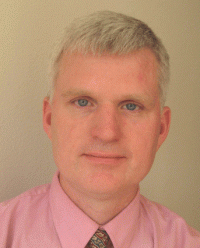Robert E.
Richard
M.D., Ph.D.

(206) 277-1625
VA Puget Sound Health Care System
S-111-Onc
1660 S. Columbian Way
Seattle, WA 98108
education, training, board certifications
- M.D., State University of New York at Stony Brook
- Ph.D. in Molecular and Cellular Pharmacology, State University of New York, Stony Brook
- Residency in Internal Medicine, University of Maryland, Baltimore Veterans' Affairs Medical Center
- Fellowship in Hematology, UW/Fred Hutch
clinical expertise
- General hematology
- Myeloproliferative disorders
- Sickle cell anemia
Publications
Clinical and/or research interests
Dr. Robert Richard's research group is based at the Seattle Division of the VA Puget Sound Health Care System in the Beacon Hill neighborhood.
Dr. Richard studies pathogenesis of classic myeloproliferative disorders. The discovery of the role of the Jak2V617F mutation in myeloproliferative disorders (MPDs) helped explain the phenotype of this class of stem cell disorder. Previous work performed in the lab of Tony Blau demonstrated the proliferative potential of a regulatable mpl molecule in human cells to expand human erythroid precursors. However, with other growth promoting cytokines, other cell lineages could be expanded. Dr. Richard believes that the pleiotropic effects of dysregulated Jak2 signaling in the MPDs is explained by activation of other gene pathways. Using retroviral gene transfer of the MPD mutations he is working to identify other gene pathwayd that play a role in MPD pathogenesis.
Dr. Richard also studies stem cell gene therapy to treat advanced HIV infection. Treatment for HIV infection are continually changing in response to the appearance of strains resistant to standard medications. Genetically engineered immune cells derived from adult blood stem cells could help rebuild the immune systems of AIDS patients. Dr. Richard has developed retrovirus vectors that can enter human blood stem cells and genetically alter the stem cells so that all cells are protected from HIV infection. By transplanting AIDS patients with genetically modified stem cells, an immune system protected from infection can develop.
The virus vectors Dr. Richard has developed are based on foamy virus, a non human primate virus that has never been associated with a specific disease. A major advantage of this vector system is its ability to make virus particles in the presence of anti-HIV genes. This is not the case with other vector systems in development for this purpose. In fact, when expressed in a different vector based on lentiviruses, two of the genes in his lab's anti-HIV vector block the ability to make the vector. The lab has been able to high-titer stocks of our anti-HIV vector so that a clinical trial could be performed.



